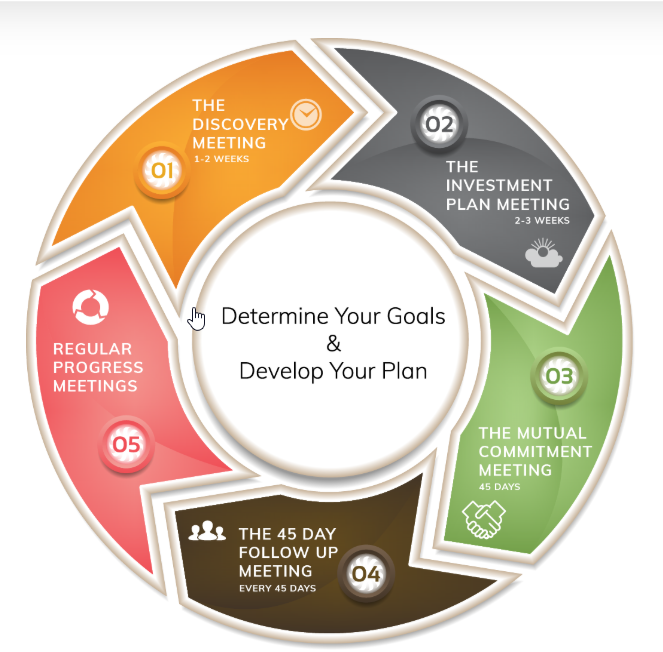Our Process
 THE 5-STEP RETIREMENT PLANNING PROCESS
THE 5-STEP RETIREMENT PLANNING PROCESS
If you want Income, we develop strategies designed around your circumstances. While most firms have historically focused on helping people accumulate money, over the last 34 years our focus has been on structuring income distribution plans that are designed to last a lifetime.
Set measurable financial goals. Set specific targets of what you want to achieve and when you want to achieve results. For example, instead of saying you want to be “comfortable” when you retire, you need to quantify what “comfortable” means so that you'll know when you've reached your goals.
Understand the effect of each financial decision. Each financial decision you make can affect several other areas of your life. For example, an investment decision may have tax consequences that are harmful to your estate plans. Remember that all of your financial decisions are interrelated.
Re-evaluate your financial situation periodically. Financial planning is an ongoing process. Your financial goals may change over the years due to changes in your lifestyle or circumstances, such as an inheritance, marriage, birth, house purchase or change of job status. Revisit and revise your financial plan as time goes by to reflect these changes so that you stay on track with your long-term goals.
Start planning as soon as you can. Don't delay your financial planning. People who save or invest small amounts of money early, and often, tend to do better than those who wait until later in life.
Be realistic in your expectations. Financial planning is a dynamic approach to managing your money. It cannot change your situation overnight. Remember that events beyond your control such as inflation or changes in the stock market or interest rates will affect your financial planning results.
Realize that you are in charge. If you're working with a financial planner, be sure you understand the financial planning process and what the planner should be doing. Ask questions about the recommendations offered to you and play an active role in decision-making.